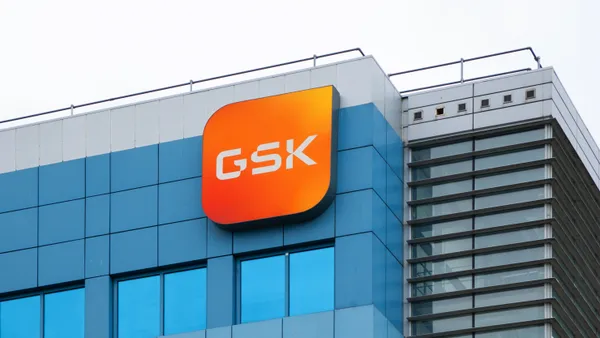Biopharma is a complex, rapidly evolving industry that is highly regulated and closely watched — and that means there is constant news. Here's a closer look at the clinical trials, M&A, cool science and regulations that are driving the industry this week.
In case you missed it
- Marketing a differentiator for Cosentyx, Taltz, Siliq
- Companies hiding RTFs from investors
- Teva hopes rebranding will solve problems
Mergers & analysis
Insurance company Cigna Corp. made the largest acquisition of the week with its $67 billion offer (including debt) to pharmacy benefit manager Express Scripts. But investors in the insurance giant weren't thrilled, sending shares in the company down more than 10% on the announcement.
For some, Cigna appears to be just playing catch up to its competitors. Many of the large insurance companies already have PBMs in-house — UnitedHealth Group owns OptumRx, CVS Health proposed buying Aetna for $69 billion earlier this year, and Anthem left Express Scripts behind to create its own PBM. What all of this means for lowering drug prices ... well that's just as opaque as ever.
Elsewhere, Sanofi SA is unloading its early development work in infectious diseases (minus its revenue-generating vaccines business) to Evotec AG. While the French pharma retains rights to develop and commercialize anything that comes out of the agreement, it will essentially outsourcing its entire infectious disease unit.
The move fits into a larger trend in pharma that has big pharma companies 'right-sizing' their portfolios to only include the most promising disease areas. It's a definite shift away from the industry's massive expansion a decade ago into clinical research across the board.
With that in mind, Merck & Co. is doubling down even more on its blockbuster immuno-therapy drug Keytruda (pembrolizumab) by giving Japanese pharma Eisai $300 million upfront for access to its cancer drug Lenvima (lenvatinib mesylate). Not only will Merck get part of the sales from the already marketed drug, but will now be positioned to test new combinations with Keytruda (pembrolizumab)
Clinically relevant
Share prices don't always go up when a company presents positive results. Such was the case with Esperion Therapeutics Inc. this week when it posted strong data for its bad cholesterol lowering drug bempedoic acid. The theory is that lowering low density lipoprotein cholesterol — commonly known as 'bad cholesterol' — instead of just raising high density lipoprotein can improve patient health and make cardiovascular problems less likely.
This hypothesis has been widely touted and hotly contested over the years. It is also the premise that the PCSK9 drugs work on. Although the PCSK9 drugs from Sanofi/Regeneron Pharmaceuticals Inc. and Amgen Inc. have shown impressive results, doctors are just not prescribing them. Regeneron CEO Len Schleifer even tried to get a hashtag going to promote the use of the drugs, but no one seems to be buying.
Thus the problem Esperion faces: while its cholesterol drug might be extremely promising and do exactly what its supposed to, it faces an uphill battle in unseating cheap, generic statins.
Elsewhere, Merck KGaA is succeeding where other pharmas have failed, using a BTK inhibitor as a treatment for an autoimmine disease. And VBL Therpeutics just tanked on Phase 3 study results for its glioblastoma drug, which showed it didn't improve overall survival when combined with Roche AG's Avastin (bevacizumab)
Highly regulated
The Food and Drug Administration has historically stayed away from the topic of drug pricing. But new Commissioner Scott Gottlieb likes to shake things up.
The FDA head honcho gave a speech earlier this week condemning insurance companies, PBMs, and just about anyone else involved in drug pricing.
"Too often, we see situations where consolidated firms — the PBMs, the distributors, and the drug stores — team up with payors. They use their individual market power to effectively split some of the monopoly rents with large manufacturers and other intermediaries rather than passing on the saving garnered from competition to patients and employers," he said.
"And the very complexity and opacity of these schemes help to conceal their corrosion on our system — and their impact on patients," he added.
Call this speech a win for PhRMA, which has criticized the role played by so-called "middle-men" in keeping drug prices high. Go Boldly Commissioner Gottlieb!













